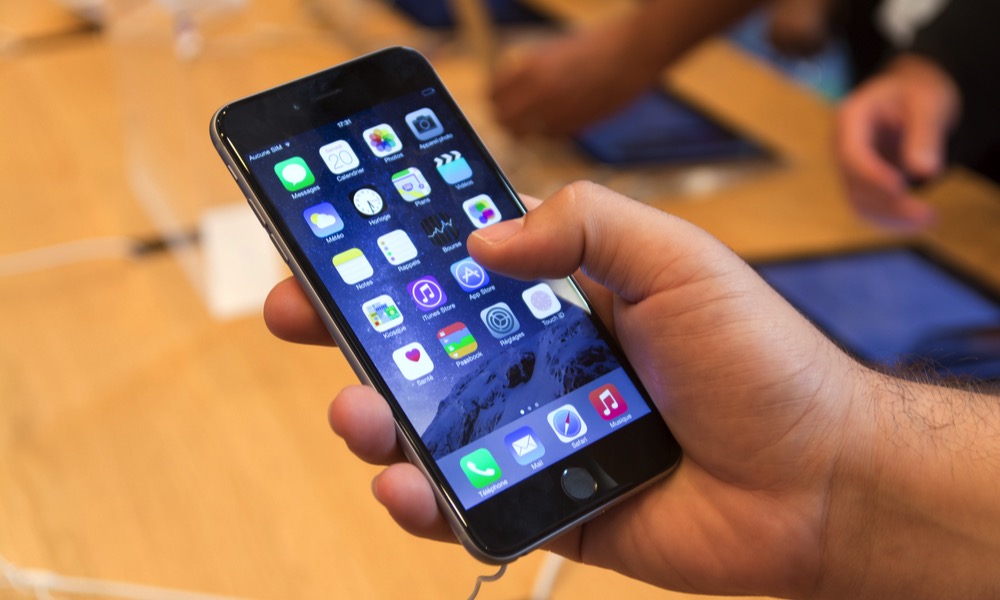Does Apple Deliberately Profit from App Store Scams? (This Developer Says Yes)
 Credit: Emasali Stock / Shutterstock
Credit: Emasali Stock / Shutterstock
Toggle Dark Mode
There is no shortage of complaints from developers about Apple’s allegedly “monopolistic” control over the App Store, but now one developer is attacking the company from a different angle, suggesting that Apple willingly allows scam apps to remain on the App Store so that it can profit from its 30 percent share of the millions of dollars that these apps rack in from unsuspecting customers.
The latest action comes from Kosta Eleftheriou, the developer behind the FlickType app, who has now filed an independent lawsuit against Apple accusing it of false advertising, breach of its developer agreement, fraud, negligence and negligent misrepresentation.
You may recall Eleftheriou as the developer who highlighted several App Store scams earlier this year in the form of several apps that were blatant ripoffs of his FlickType keyboard app. According to Eleftheriou, these apps not only claimed to offer the same functionality as FlickType, but they went so far as to rip off his promotional and marketing materials to dupe users into downloading — and paying for — their apps instead.
The biggest problem with these apps? They didn’t even attempt to deliver on the promised features. These weren’t merely “copycat” apps of Eleftheriou’s own, but rather completely non-functional scams that locked their empty promises behind exorbitant $7.99/week subscription fees.
To add insult to injury, these apps ended up generating millions of dollars per year in revenue while Eleftheriou struggled to make money on his own apps. At one point, one of the most “popular” scam apps, KeyWatch, was raking in $2 million per year on its own.
Holding Apple Responsible
Eleftheriou has repeatedly questioned why Apple hasn’t done more to eliminate these apps and properly police the App Store, and it’s a fair question. Despite Apple tightening its policies in the past, often its App Store enforcement seems to be inconsistent at best, and this is one case where it seems to have dropped the ball pretty badly.
Apple entices software application developers like Plaintiff to develop innovative applications with the promise of a fair and secure App Store in which to sell them. In truth, Apple systematically flexes its monopoly muscle against potential competition through the App Store and profits from rampant fraudulent practices.
Court filing in Kpaw, LLC vs Apple, Inc.
However, now Eleftheriou is calling Apple to account for this with the suggestion that the company may have a far more sinister, profit-driven motive behind its lax enforcement of scam apps. After all, Apple gets 30 percent of all the revenue that these scam apps fleece out of unsuspecting customers.
In his lawsuit against Apple, first reported by The Verge, Eleftheriou makes the claim that Apple not only “does little to police these practices because it profits from them,” but that its claims to regulators of running the App Store to “protect consumers,” is nothing more than a blatant lie.
Apple permits other developers that Apple does not view as real competition, including scam competitors, to peddle similar, inferior products because Apple profits from their sales. Scammers oftentimes use screenshots and videos taken from legitimate developer’s applications and manipulate their ratings. Apple does little to police these practices because it profits from them. Apple then lies to its regulators by asserting that it must maintain its monopoly power over the sale of Apple-related applications to protect consumers, when, in fact, Apple lets them get ripped off and exploits the developers trying to deliver innovation to consumers.
Court filing in Kpaw, LLC vs Apple, Inc.
Eleftheriou goes on to add that “despite possessing massive resources and technological savvy, Apple intentionally fails to police these fraudsters, costing honest developers millions, and perhaps billions, while Apple continues to amass huge profits for itself.”
What’s interesting is that Eleftheriou’s complaints with Apple actually run even deeper than this, going back several years to when he struggled to get his FlickType app approved by the App Store review team in the first place, which he viewed as an attempt to “crush” his app after talks of Apple potentially acquiring it stalled.
If Apple cannot buy a desired application from a developer on the cheap, Apple attempts to crush that developer through exploitive fees and selective application of opaque and unreasonable constraints against the developer.
Court filing in Kpaw, LLC vs Apple, Inc.
Although Eleftheriou didn’t make a big issue of this at the time, he does include this background in the current lawsuit, adding that “Apple’s wrongful rejections” had cost him “over a year of revenue.”
From Eleftheriou’s previous comments on Twitter, it appears he’s been willing to give Apple the benefit of the doubt for a very long time, emphasizing that he generally believed that Apple wants to do the right thing. More recently, however, as he’s observed more and more scam apps going unchecked on the App Store, his viewpoint began changing.
At this point, he’s clearly decided that Apple is no longer acting out of blind or naive goodwill. The tone of his lawsuit makes it clear that he feels that Apple has been knowingly and willingly participating in these scams.
In his lawsuit, which was filed in Santa Clara County yesterday, Eleftheriou is accusing Apple of false advertising, unfair competition in violation of California’s business and professions code, breach of good faith and fair dealing with regard to the Apple Developer Program License Agreement, fraud, and negligence and negligent misrepresentation.






